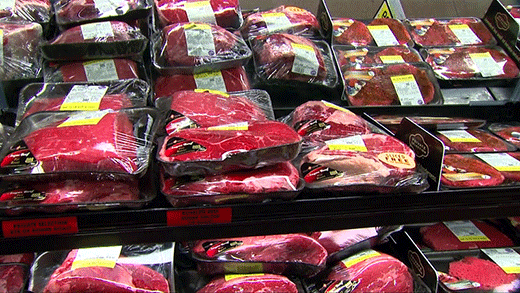
Food safety specialist Karen Blakeslee credits grocery stores for keeping foods safe during the COVID-19 pandemic. | Download this photo
Are groceries safe to bring home? Food safety expert weighs in
K-State’s Blakeslee lauds grocery stores for staying open during tough times
April 16, 2020
MANHATTAN, Kan. – In light of the current outbreak of the novel coronavirus, food safety specialist Karen Blakeslee says grocery stores are doing hero’s work.
“We have to give grocery stores a lot of credit for going above and beyond to keep their doors open these days,” said Blakeslee in her monthly newsletter, You Asked It!, published by the Rapid Response Center at Kansas State University.
“So, while they do their part to keep food safe, we must do the same.”
Consumers have received various pieces of advice, from wiping down all groceries before bringing them into their homes, to letting the groceries sit in the garage for a few days before bringing them inside.
But, leaving them sitting outside, “can have some serious food safety implications for perishable foods such as milk and meat,” Blakeslee said. “There is some indication that COVID-19 can inactivate at room temperature (such as while sitting in a garage), but all groceries would have to be contaminated” for this to be a recommended safety measure.
Instead of leaving groceries in a garage or other outside location, Blakeslee suggests simply washing your hands, putting groceries away safely, then washing your hands again.
“Cleaning food packages or washing fresh produce with soap is not recommended,” she said. “Fresh produce can be safely washed and scrubbed in plain water. After handling packages, simply wash your hands again before food preparation.”
Blakeslee said reusable bags should be washed often to keep them clean (some grocery stores may not allow customers to use reusable bags). She also suggested throwing away plastic bags.
For more home food safety tips, visit the K-State Research and Extension Food Safety website.
